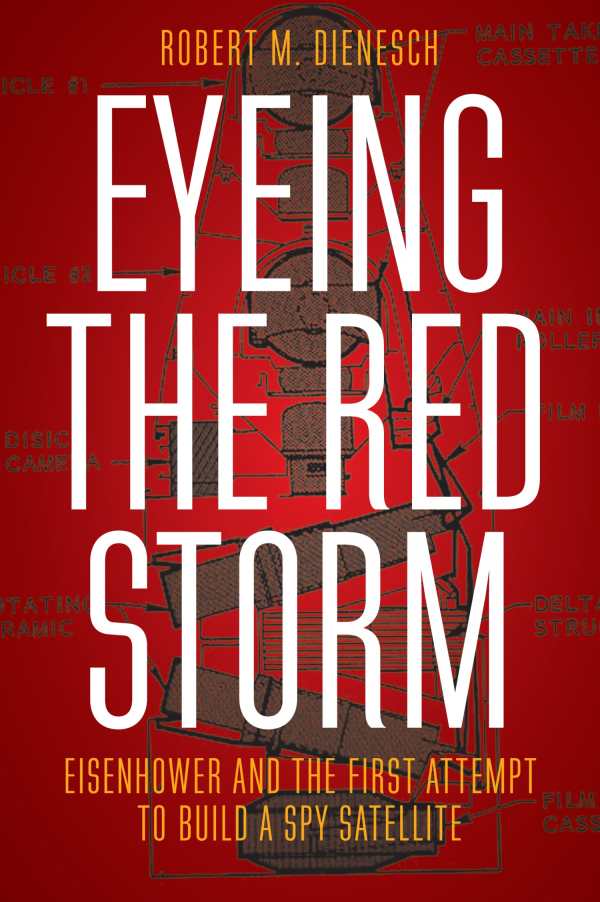Eyeing the Red Storm
Eisenhower and the First Attempt to Build a Spy Satellite
Historian Robert M. Dienesch’s latest work is an intriguing and incisive study of the transformational period in American history when the federal government retooled defense spending and foreign policy toward communist containment and nuclear deterrence.
Eyeing the Red Storm meticulously delineates Cold War policy under the Eisenhower presidency and the development of the first satellite spy program, which, technically a failure, produced future successes. Particular attention is given to the birth of the military-industrial complex and how different military branches and their lobbyists exaggerated the Soviet threat to pressure the president for more funding. The book effectively argues that development of a spy satellite program was just as much a response to potential Soviet aggression as it was to an overzealous American military straining the domestic economy with funding requests. Eisenhower desired clarity and developed spy programs to have a better picture of Soviet activity as opposed to the dire predictions of his generals; he was haunted by both the specter of nuclear war and the specter of federal insolvency.
The relationship between outer space and a growing national intelligence apparatus is also elucidated. Tapping the best scientific minds in academia and the private sector, Eisenhower developed a satellite program that would serve as a prototype for future reconnaissance technology and accelerate the space race with the Soviet Union. Expertly curated and cited, the chapters reveal the incredible amount of collaboration that produced such a program. Of note are geniuses and entrepreneurs like Edwin Land, creator of the Polaroid Corporation, who helped develop the U-2 spy plane.
The technical minutiae covered in Eyeing the Red Storm don’t preclude a greater sense of intrigue. The book puts readers into the middle of the Cold War, when two superpowers were reading and reacting to each other somewhat blindly. As Dienesch emphasizes more than once, the stakes in this spy game were no less than civilization itself, for both sides had developed enough nuclear weapons to annihilate humankind.
Reviewed by
Scott Neuffer
Disclosure: This article is not an endorsement, but a review. The publisher of this book provided free copies of the book to have their book reviewed by a professional reviewer. No fee was paid by the publisher for this review. Foreword Reviews only recommends books that we love. Foreword Magazine, Inc. is disclosing this in accordance with the Federal Trade Commission’s 16 CFR, Part 255.

